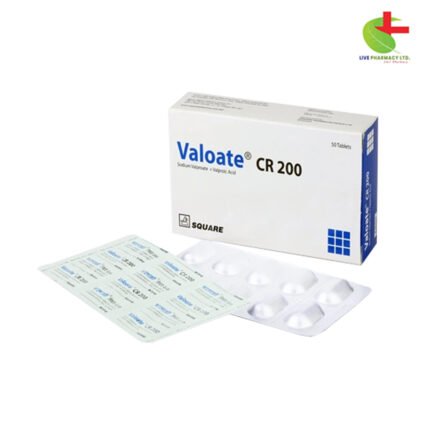Asynta
50.00৳ Strip
- Asynta: Specialized treatment for acid reflux symptoms like heartburn and acid regurgitation.
- Formulated with Sodium Alginate and Potassium Bicarbonate to create a protective barrier in the stomach.
- Provides relief for up to 4 hours, preventing reflux into the esophagus.
- Suitable for adults and children over 12 years old, can be used alongside or after acid-suppressing therapy.
 Brand
Brand
|
Square Pharmaceuticals PLC |
|---|---|
 Generics
Generics
|
Sodium Alginate + Potassium Bicarbonate |
 Type
Type
|
Tablet |
Indications
Asynta is prescribed for alleviating symptoms caused by the reflux of acid, bile, and pepsin into the esophagus. These symptoms include acid regurgitation, heartburn, and indigestion, often occurring post-gastric surgery, due to hiatus hernia, during pregnancy, or in cases of reflux esophagitis. It also addresses symptoms of laryngopharyngeal reflux such as hoarseness, voice disorders, sore throats, and cough. Asynta is effective for managing gastroesophageal reflux alongside or following the discontinuation of acid-suppressing therapy.
Pharmacology
Asynta combines Sodium Alginate and Potassium Bicarbonate. Sodium Alginate, a natural substance, reacts with stomach acid to form a gel. Potassium Bicarbonate reacts similarly, producing carbon dioxide bubbles that are trapped by the Sodium Alginate gel, creating a raft-like barrier on top of stomach contents. This physical barrier prevents acid reflux into the esophagus, thereby relieving heartburn symptoms. The mechanism of action is purely physical and does not involve systemic absorption. The raft remains effective for up to 4 hours before breaking down and being excreted in feces.
Dosage & Administration
Tablet:
- Adults and children over 12 years: Take 1-2 tablets 3-4 times daily, after meals and at bedtime.
- Children 6-12 years: Take ½-1 tablet 3-4 times daily, after meals and at bedtime. Suspension:
- Adults and children 12 years and above: Take 5-10 ml (1-2 teaspoonfuls) 3-4 times daily, after meals and at bedtime.
- Children 2-12 years: Take 2.5-5 ml (½-1 teaspoonful) 3-4 times daily, after meals and at bedtime. Use is not recommended for children under 2 years of age. No dosage adjustments are necessary for elderly patients or those with hepatic impairment. Use caution in patients requiring a highly restricted salt diet due to renal insufficiency.
Interaction
Allow a 2-hour interval between taking Asynta and other medications, particularly tetracyclines, fluoroquinolones, iron salts, thyroid hormones, chloroquine, bisphosphonates, and estramustine.
Contraindications
Do not use Sodium Alginate and Potassium Bicarbonate if you have a known hypersensitivity to these substances.
Side Effects
In addition to its therapeutic effects, possible side effects may include nausea, constipation, diarrhea, or headache. Consult a physician if these symptoms occur. In case of excessive dosage, a sensation of swelling may occur, necessitating medical consultation.
Pregnancy & Lactation
This combination can be used during pregnancy if clinically necessary and does not affect breastfed infants.
Precautions & Warnings
Use Sodium Alginate and Potassium Bicarbonate cautiously in patients with renal impairment or congestive heart failure. Care is advised when treating patients with hypercalcemia, nephrocalcinosis, or recurrent calcium-containing renal calculi. Efficacy may be reduced in patients with very low gastric acid levels. Reevaluate treatment if symptoms persist after seven days.
Overdose Effects
Overdose with this formulation is rare. Consult a healthcare professional if overdose is suspected.
Therapeutic Class
Antacids
Storage Conditions
Store below 30°C, away from light and moisture. Keep out of reach of children.













Reviews
There are no reviews yet.